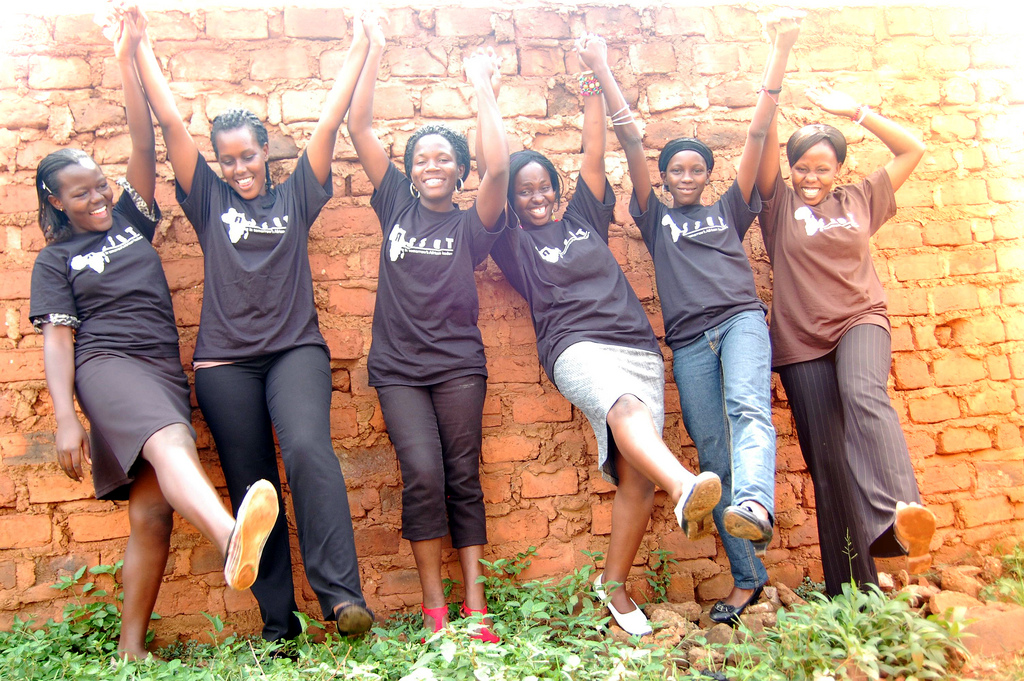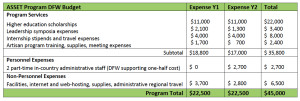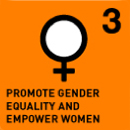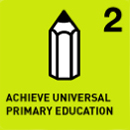
Mission
ASSET’s mission is to provide higher education scholarships and mentoring to disadvantaged college-level students in Uganda who demonstrate real potential for success.
Life Challenges of the Women Served
In Uganda, women face disproportionately higher levels of poverty and illiteracy, resulting in fewer opportunities for economic advancement than men. While Uganda has a universal free education system for primary through secondary school, university enrollment levels remain low, especially for women. This is partly because of widespread poverty within the country but even when resources exist within a family, males are often given more opportunities to achieve higher education while females are held back to help with chores and begin domestic life. At the higher education level, there are few government scholarships, and private loans are difficult to come by, making it more challenging for lower- and middle-class women to attend college.
An alarming trend has been an increase in the number of female students turning to ‘sugar daddies’ to finance their university education in exchange for sexual favors, thus increasing their vulnerability to sexually transmitted diseases. Many college-educated women in Uganda struggle to find employment after graduation, due to a variety of factors, including gender-based discrimination in the workplace and lack of career guidance and mentorship opportunities for young women.
Another startling trend is the frequency with which young college-educated women are asked for sexual favors in return for employment.
“When women in a community are educated, they are more likely to stay in that community, to work in that community, and to contribute to that community. They become an asset to that community.” — World Bank, 2010, Gender Equality as Smart Economics
With the increasing global and national awareness of the importance of educating women, there are promising signs of improvement for Ugandan women in higher education. But there are significant shortages of Ugandan women who have completed education and who are prepared to serve as leaders, models and advocates for the girls and women who will follow.
The Project
ASSET’s Women in Higher Education program recruits and supports young Ugandan women to attend universities. It partners with communities and universities to select, enroll, and support promising women to complete higher education. Students are selected because they have supportive parents and have shown educational and leadership promise. The program works with local organizations to provide supplementary training, mentoring, internships and career counseling to enhance each woman’s potential to become a successful student, worker, role model, and future leader.
To date, ASSET has raised the majority of its funds from donations provided in exchange for Ugandan jewelry. The organization has identified and cultivated a network of talented Ugandan women artisans who create beautiful jewelry made from recycled paper. The artists are provided safe and clean work environments, and paid fair wages for their work. The program, Bead 2 Read, allows ASSET to positively impact yet another group of women—the artisans. Many of these women are the main income earners in their households. The jewelry they make and sell generates income to help them support their families and educate their own children. As part of the Women in Higher Education Program, ASSET will provide training to improve the entrepreneurial and business skills of the artisans as well as have regular quarterly meetings for quality improvement.
Questions for Discussion
1. How is the concept of women-helping-women presented in the funding strategy for ASSET?
2. How important is the support of family in one’s education and career development?
3. Why is it important that college graduates return to their own communities in ASSET and other DFW-funded programs?
How the Grant Will be Used
DFW’s grant of $45,000 over two years will provide university scholarships for 20 young Ugandan women along with leadership training, mentoring, and internship support. Partial funding will support Ugandan administrative staff and facilities. Our grant will also enhance the Bead 2 Read program by providing training and support to improve the business and entrepreneurship skills of the artisans.
NB: Donations exceeding the pledged amount go into our reserve which provides funds for our sustained programs and ensures we are able to meet all our future grant obligations.
Why We Love This Project/Organization
We love the opportunity to build a core of women leaders for the future of Uganda through education, career development, and mentorship. We believe that programs like ASSET provide deep and transformational support for women to complete higher education, guiding them through challenges during their university years.
We are ensuring money is used effectively because tuition money goes directly to universities; ASSET’s staff meets regularly with the women’s professors, and scholarship recipients have to maintain a 3.0 GPA to stay in the program. A network of ASSET scholars, graduates of the scholarship program, remain actively involved in helping to mentor and guide the students who have not yet graduated. They are expected to make lifelong meaningful contributions to society and become important leaders in Uganda.
While ASSET provides financial scholarship, mentorship and career development, it is the students themselves whose determination and hard work takes them to graduation day.
Evidence of Success
The higher education program has served 18 students in programs including nursing, public health, social work, business administration and public policy. Some key results include:
- All 18 students have attendance rates of at least 95 percent; with 15 at 98 percent.
- Grade point averages are high: ASSET students all maintained at least a 3.2 average.
- Of the 16 who have graduated from the program to date, 12 are employed, three have accepted internships in banking and public service, and one is attending graduate school in India.
It took most graduates at least six months to find a job. This contributed to ASSET’s addition of career guidance into its mentoring program and offering more practical workplace training through internships.
Voices of the Girls
“My parents are subsistence farmers and I could only dream about attending university. I thank ASSET so much for supporting those of us who are not able to pay our own school fees. I am so grateful for all the support ASSET has given me, including the mentorship and leadership training. I know that one day I will become someone very important in economics, so that one day I’ll also be able to support someone else out there.”
—Monicah, ASSET scholarship recipient
“Thanks to ASSET, I am currently working towards my degree in social work. I come from a polygamous family and am one of nine children. My father always worked hard as a taxi-bus driver to ensure that our basic needs and education were met, but then he lost his job when I was in high school. I was accepted into university but did not have the money to attend. I’m going to work hard so that I can support my fellow Africans and achieve my dreams.”
—Lydia, ASSET scholarship recipient
“I am one of the bead-makers for ASSET. I came to Kampala from Northern Uganda because of the war, but it has been a struggle to support my family. I took a job hammering rocks in a rock quarry. This was very difficult work and I earned little money. Since I started making beads for ASSET, I have been able to better provide for my family and am proud of the skills I am learning.”
—Grace, ASSET artisan
UN Millennium Development Goals supported by the program
About the Organization
ASSET was founded in 2008 by husband-and-wife team Chris and Heather Lukolyo, both of whom have strong ties to Uganda. Chris was born and raised in Uganda; he and Heather met there. Heather first visited Uganda with her mother when she was just 2 years old and has lived and worked there several times since.
Where They Work
The Republic of Uganda, is a land-locked country in East Africa with significant resources, but also many problems rooted in its political history.
Economically, Uganda is one of the poorest nations in the world, with over a third of the population living on less than $1.25 a day.
Politically, Uganda is a presidential republic in which the president is both head of state and head of government. President Yoweri Museveni has been in power since 1986 when he successfully ousted the infamous dictator Idi Amin. Amin ruled Uganda with the military for eight years and carried out mass killings within the country to maintain his rule. An estimated 300,000 Ugandans lost their lives at the hands of his regime. Aside from his brutalities, he forcibly removed the entrepreneurial South Asian minority from Uganda, which left the country’s economy in ruins.
Ecologically, Uganda is where the East African savannah meets the West African jungle. In this unique location, one can observe lions prowling the open plains in the morning and track chimpanzees through the rainforest undergrowth the same afternoon, then the next day navigate tropical channels teeming with hippos and crocodiles before setting off into the misty mountains to visit the majestic mountain gorillas. Uganda is also blessed with a vast bird population of more than 1,000 species.
Source Materials
- Documentation and images provided by ASSET
- World Bank (2010). http://siteresources.worldbank.org/INTGENDER/Resources/GAPNov2.pdf
- http://siteresources.worldbank.org/INTGENDER/Resources/GAPNov2.pdf
- http://www.salveinternational.org/salve-explained/education-in-uganda/



